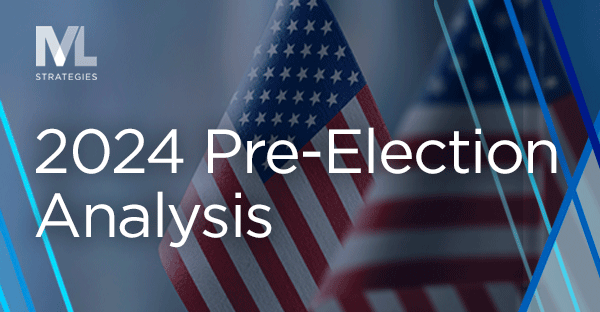US-Canada Cross-Border Quick Guide
This pre-election analysis from ML Strategies will explore some of the most pressing cross-border issues that will be tackled by the next administration and 119th Congress. Click here to read our full analysis.
Here are some topline takeaways from key issues:
| | |
|
|
|
|
|
|
|
|
|
|
|
|
|
|
|
Content Publishers
R. Neal Martin
Senior Director of Government Relations
R. Neal Martin is a Senior Director of Government Relations at ML Strategies. He focuses on transportation, infrastructure, clean energy, trade, and federal appropriations, leveraging his many years of experience in government and government relations.
Myria S. Garcia
Manager of Legislative and Regulatory Affairs
Myria Garcia is a Manager of Legislative and Regulatory Affairs of ML Strategies. She draws on experience with energy and international issues while working at a national lobbying law firm to help clients achieve their legislative goals.
Matthew T. Simpson, Co-chair of the Private Equity Practice, is a Mintz attorney who focuses his corporate transactional practice on helping domestic and international companies solve acquisitions, financings, and governance matters. Matt uses his background as an international negotiator to assist clients with transactional arrangements.




